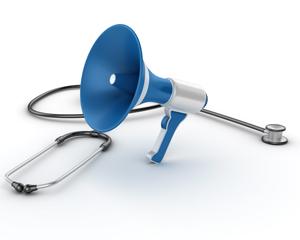Proudly Part of Privia Health

Your Roadmap to a Comprehensive Low T Evaluation in Idylwood, Virginia (600)
Low testosterone, or Low T, is a subject that’s gaining attention for good reason. It’s more than just a matter of energy or libido; it can impact your overall health and quality of life. If you suspect you might be affected by low testosterone, you’re in the right place. This guide will walk you through a comprehensive Low T evaluation in Idylwood, Virginia, so you know exactly what to expect from each part of the process.
What Is Low Testosterone and Why Does It Matter?
Testosterone plays a vital role in male health, affecting everything from physical performance to mental sharpness and mood. Declining levels can result in low libido, fatigue, reduced muscle tone, and even cognitive issues.
If left unaddressed, Low T can disrupt your daily life and long-term health. A thorough Low T evaluation in Idylwood, Virginia isn’t just about confirming the condition. It’s about uncovering its root causes and crafting an effective treatment plan.
Key Symptoms to Look Out For
Recognizing the signs is the first step. If you’re experiencing the following symptoms, it could indicate low testosterone levels:
- Low libido and erectile dysfunction affecting sexual health.
- Unexplained fatigue or dips in energy.
- Decreased muscle mass and increased abdominal fat.
- Mood swings, irritability, or feelings of depression.
- Diminished focus and memory.
- Sleep disturbances that leave you feeling unrested.
If these symptoms sound familiar to you, it’s worth pursuing an evaluation with a qualified professional.
9 Steps to a Comprehensive Low T Evaluation in Idylwood, Virginia
Here’s a step-by-step breakdown of what happens during a Low T evaluation:
1. Initial Consultation
At a consultation, your healthcare provider will begin by discussing your symptoms, medical history, and personal concerns. Together, you’ll identify patterns or changes linked to Low T. Be open about how you’ve been feeling; every detail counts.
2. Physical Exam
A thorough physical exam will follow. This helps assess your general health and spot physical indicators of low testosterone, such as smaller testicle size or the development of breast tissue (gynecomastia).
3. Fasting Blood Test
To get an accurate hormonal reading, a fasting blood test is taken in the morning. Why morning? Testosterone levels naturally peak during this time, providing the clearest picture. If your testosterone levels are low, a second test will likely be done to confirm the results.
4. Comprehensive Blood Analysis
Beyond total testosterone, additional tests may measure free testosterone, LH (luteinizing hormone), FSH (follicle-stimulating hormone), SHBG (sex hormone-binding globulin), estradiol, and prolactin levels.
This in-depth analysis helps pinpoint the root cause of your Low T, whether it’s lifestyle-related, age-related, or due to underlying health concerns.
5. Review Your Medical History
Next, your doctor will carefully evaluate your medical history. Certain medications, chronic illnesses, or previous treatments can contribute to testosterone issues. Understanding these factors will shape your personalized treatment plan.
6. Assess Lifestyle Factors
Diet, exercise, stress levels, and sleep habits all influence hormone levels. Your provider will discuss these aspects of your lifestyle and may suggest incremental changes to help improve your testosterone naturally.
7. Imaging, If Necessary
Sometimes, additional imaging tests may be recommended. These could include scans of your pituitary gland or testicles to rule out structural abnormalities. While this step isn’t always needed, it’s a crucial part of ruling out serious underlying conditions.
8. Diagnosis and Individualized Low T Treatment Plan
Based on your test results and comprehensive Low T evaluation in Idylwood, Virginia, you’ll receive a clear diagnosis.
Your healthcare provider will outline the best treatment options tailored to your needs. Treatments might include lifestyle adjustments, testosterone replacement therapy, or addressing specific medical concerns that are affecting your hormone levels.
9. Follow-Up Appointments and Monitoring
Low testosterone isn’t a one-and-done diagnosis. Regular follow-ups ensure your treatment plan is working and adjustments are made as needed. Consistent monitoring helps maintain balanced testosterone levels and prevent any potential side effects from treatment.
Take the First Step Towards Improving Your Hormone Health
Ready to take the next step with a comprehensive testosterone evaluation? If so, please call our office today to schedule a visit with one of our highly skilled and experienced specialists.
